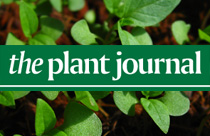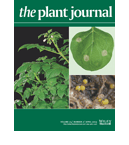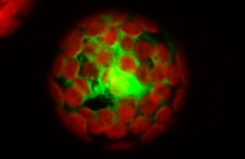News
Plants prioritize foraging for light over immune responses
April 2013
 In the wild and especially in agricultural monocultures, plants are often present in dense stands. Consequently, plants are simultaneously exposed to competition for light and other stresses such as pathogen or insect attack. So how do plants cope with these complex situations in which very different stresses are encountered?
In the wild and especially in agricultural monocultures, plants are often present in dense stands. Consequently, plants are simultaneously exposed to competition for light and other stresses such as pathogen or insect attack. So how do plants cope with these complex situations in which very different stresses are encountered?
In collaboration with the Plant Ecophysiology group at Utrecht University (Netherlands), we addressed this question by investigating different immune responses while exposing plants to competition for light. We simulated dense stands by exposing plants to a low red:far-red light ratio, a warning signal for plant competition, while also inoculating them with different plant pathogens. We found that responses to avoid shade cast by neighbouring plants were strongly prioritized over activation of immune responses. As a result, plants that avoided shading were more susceptible to several pathogens with distinct lifestyles. Genome profiling suggested that shade avoidance suppressed many immune genes by preventing the phosphorylation of crucial immune gene regulators.
Our findings have important implications for agriculture where very dense stands of plants are common. They may in part explain why agricultural monocultures are often hit by severe diseases that spread quickly. Thus, rethinking current agricultural strategies may increase crop yield and food security.
These findings are now published in The Plant Journal:
"Perception of low Red:Far-red ratio compromises both salicylic acid- and jasmonic acid-dependent pathogen defences in Arabidopsis"
De Wit M, Spoel SH, Sanchez-Perez GF, Gommers CMM, Pieterse CMJ, Voesenek LACJ, Pierik R. PLANT JOURNAL (2013), doi: 10.1111/tpj.12203

